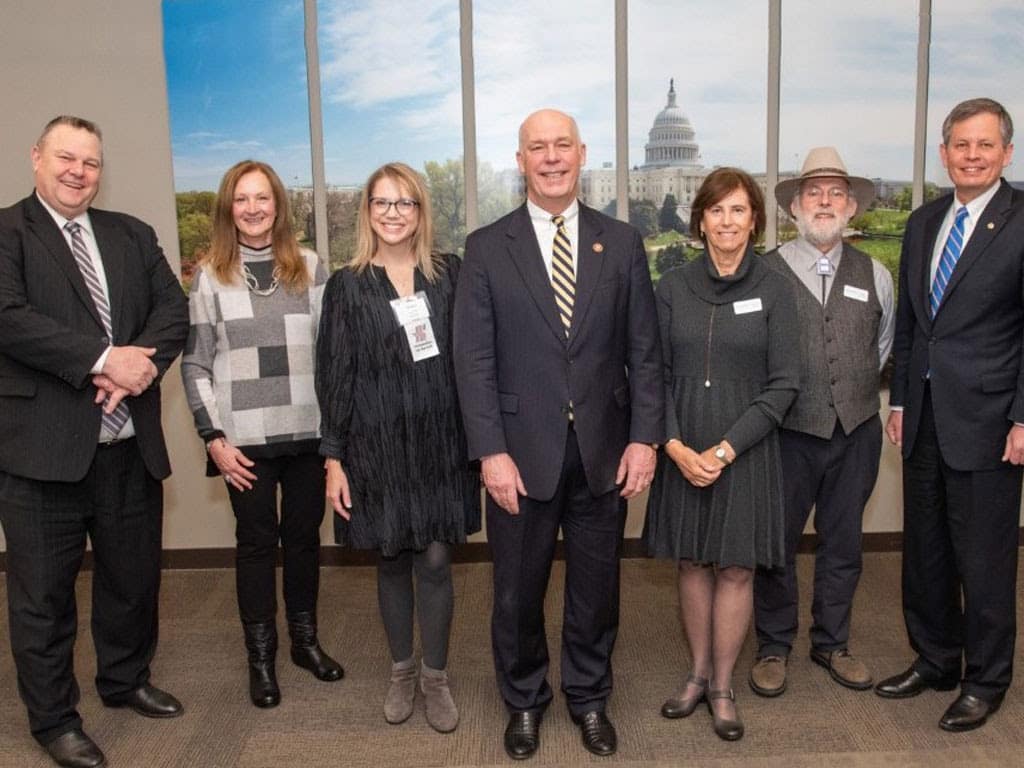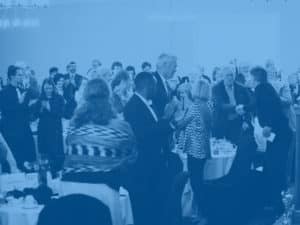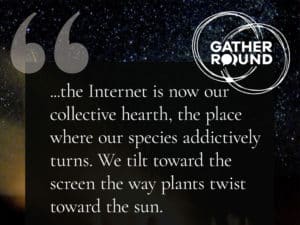Our team arrived in D.C. armed with enthusiasm about the stories of the impactful work of Humanities Montana and a clear vision of the advocacy process after a workshop with NEH leaders. We were there to exercise our political rights in a highly divisive time. As we met with each member of our delegation, we talked about the importance of the humanities in the lives of Montanans, asked them to support funding for NEH and affiliate councils, and heard about the ways the Congressmen connect to our mission.
The first morning, we headed for the seventh floor of the Hart Senate Office Building for a Montana Coffee. This bipartisan ritual allows dozens of Montanans to gather for a brief, informal chat with all three of our Congressmen, an early introduction that gave us more time for substantive discussion in our face-to-face meetings. I would encourage anyone who reads this who is so inclined to take a minute to amplify our message to the members of our delegation with a personal story of why you think the humanities are an essential part of Montana.
Our official meetings began with Senator Steve Daines and his Legislative Staffer Joshua Sizemore. Senator Daines is on the Interior Appropriations Sub Committee and is in the majority. He wields significant power in creating the budget. We saw a passionate side of the Senator as he explained that rural America and Montana are a big part of what our democracy looks like. We described our humanities programs in rural Montana, including the Democracy Project for youth, and he was very supportive of the work.
After a quick cab ride across the capitol, we met Congressman Greg Gianforte and his Senior Legislative Assistant Tripp McKemey. We described the programs and grants we provide to Montanans using funding from the National Endowment for the Humanities. Greg was positive about our work and assured us of his support for the humanities, arts, and education. Randi and the Congressman connected over a shared admiration for Montana author Ivan Doig.
We then took advantage of a beautiful sunny day and walked to the offices of Senator Jon Tester where we met Jon and his Legislative Assistant Katie Rubinger and again described Humanities Montana’s programs and the populations we serve. Jon is also a member of the Interior Appropriations Sub Committee, though in the minority. We explained the NEH funding requested amount of $170M was a modest increase above the current budgeted amount. He said it was a worthy request.
Between congressional appointments, Jamie and I took a brief respite from discussing all things humanities and reflected on the challenges and methodologies of our spring cow work. I think it took Scott and Randi a bit by surprise when we began to discuss the merits of “cutting” or “banding” our bulls as we navigated the streets of Washington, D.C.! At Randi’s suggestion we attended an exhibit at the Smithsonian’s Renwick Gallery entitled Hearts of Our People, Native American Artists to explore the variety of artistic achievements by Native American women. Following this busy morning, Jamie graciously took us to a fabulous lunch at Jose Andres’ restaurant Oyamel.
During the final evening reception, we had a few minutes to chat with NEH Chairman John Parrish Peede. We talked about his previous visit to Montana in 2018 when he attended our board meeting in Crow Agency and the conference “Treaties That Live: Sesquicentennial of Crow (Apsaalooke) Indian Treaties of 1868.” We invited him back to Montana in the near future—maybe we’ll tell him how our spring cow work went.
It was a pleasure and a privilege to represent Humanities Montana on the Hill. If you would like to write our delegation about your humanities story, you can find their contact information here.
–Caroline Bitz, Board Member




